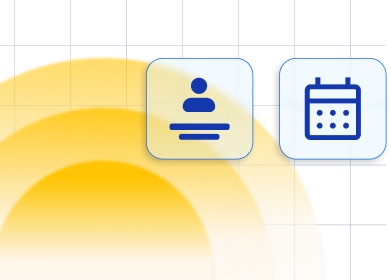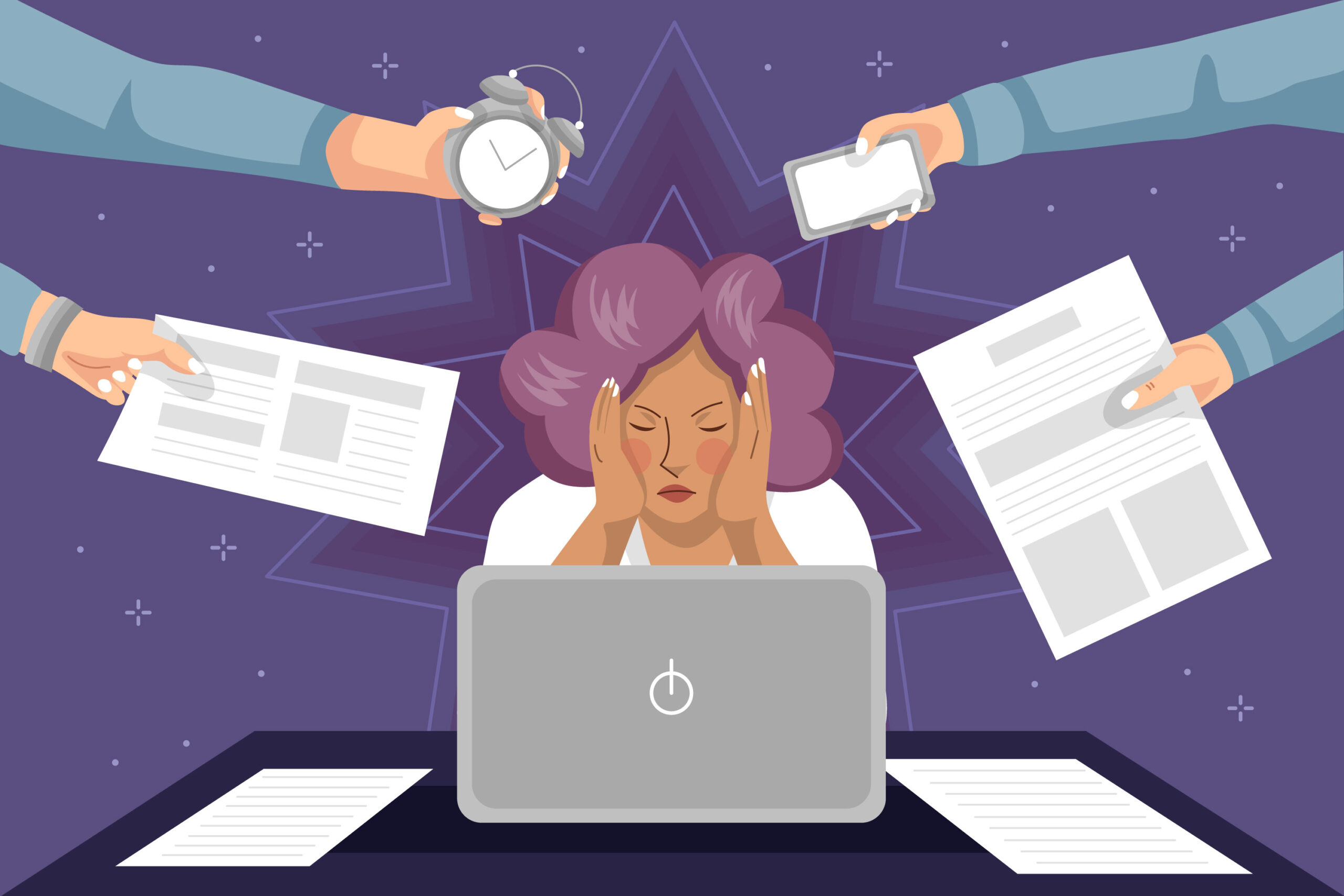Have you ever told to yourself: stop wasting time! and yet, it didn’t work?
Interruptions come in many forms. Whether that’s scrolling through social media or staring out of the window, the effects are the same – less productivity no matter how much time you spend sitting at your desk.
Luckily, there are productive things to do to help get the momentum going and keep the interruptions at bay. Let’s start by recognizing where these interruptions come from – procrastination.
Procrastination is a major issue for everyone.
It’s a natural result of the complicated human brain searching for stimulation. A task you are working on may not be immediately exciting at the moment, so your mind wanders, looking for other things to entertain it.
There is nothing wrong with taking breaks in order to keep your brain active and fertile so that ideas can emerge and aid your work. The problem is when you are a slave to procrastination.
This article created by our team at Trafft presents top productivity tips to help you stop wasting time.
How to stop wasting time: Tips to use to get things done
Control and Eliminate Distractions
It’s easier than ever to get distracted while trying to work. Many of the products and services we use seem designed to catch our attention and hold it for as long as possible. One of the most potent examples of this is the cell phone.
There are a multitude of useful apps for your phone that disable some functionality if you wish. For example, you can set one of these apps to not allow any access to social apps for a certain length of time. Similar software can be downloaded and installed on computers as well.
Also, site blockers will restrict your access to whichever website you ask it to. The most effective way to block out distraction is still to keep your phone in your bag, or at the very least keep it out of sight while you work.
Track Your Wasted Time
No improvements in your productivity can be made until you first recognize what’s happening. Tracking your daily activities for a week can be a great start.
If you find yourself spending time helping colleagues with their problems, scrolling through your social media pages, or anything besides your actual work, then this might be a good tactic to employ.
There are many apps and pieces of software you can use to track your activity, but whichever way you do it, it’s a great way to see where improvements can be made.
We made an article with the best time tracking apps, so do check that one out.
You may be surprised at just how much time you are wasting in a day! This is one of the most productive things to do to help solve this.
Look Out for “Time Traps”

Image by Erik Lucatero from Pixabay
“Time traps” or time wasters come in many different forms — from social media to chores you may have been putting off. While you might feel productive while you are doing them, you may end up finding that you’ve accomplished very little and your work is still there, needing to be done.
As we mentioned in the last post, tracking your time is a good way to combat this, but you don’t need to keep a log of your activities 365 days a year. Two or three-week stretches are enough to spot patterns of bad habits. The best way to go about solving this is to make sure the work you are doing is something you care about. This will eliminate a lot of the desire to procrastinate.
Allocate Time Effectively
One of the biggest lessons you can learn is how to say “no”. Helping out colleagues and friends is great, but too much time spent doing so can eat into your own time and impact your work.
Try and find a happy balance between doing things that you like and care about with the people that matter most and your professional work.
Hopefully, these things will coincide, but if not it’s important to balance the two. Try this whenever you are about to start something: ask yourself “is this going to take me closer or further from my goals?”
Depending on the answer, you will know if it is something worth spending your precious time doing.
Know When You Have Control and When You Don’t

Image by StartupStockPhotos from Pixabay
Remember to avoid falling into the trap of judging each hour by its potential productivity. There will be unavoidable events in your schedule that you have no control over, aka meetings, repetitive emails, etc. Counting every single unproductive moment as a waste of time can leave you feeling frustrated.
The problem is, there are many aspects to a day that are unavoidable. It’s OK to not spend every waking hour being productive. If you let yourself feel frustrated by these times it will negatively impact your mental health, and leave you unproductive during those times when you should be working.
Be flexible.
These unavoidable things are necessary for a healthy life.
Begin Each Day With Purpose
This is an important one.
Start each day with drive and positive intentions.
Beginning the day in the right state of mind is vital to having a productive day. It will also help you to maximize your productive time.
If you only plan out one time of day, make it the morning.
If you start with exercise, breakfast, learning a language, and answering emails for the first three hours, you will have already accomplished a lot. This means that even if you have a frustrating and unproductive day, you won’t have completely done anything with your time.
Maintaining your health, relationships, and education is ultimately positive for long-term productivity. Don’t neglect them!
Check Your Inbox a Limited Number of Times a Day
So, we’ve learned how some distractions can be eliminated, including those caused by procrastination.
But others are harder to deal with.
For example, external distractions such as phone calls or emails can be productivity killers.
This is why it is important to have a rule in place that is simple, but very effective.
Schedule time to deal with these things. Have allocated times of the day when you check and respond to emails. If you can, set up a notice that tells everyone when you are available to answer phone calls. This will keep you from using up brainpower throughout the day that could be used more productively.
Stop or Limit “Drop-In” Meetings
Full-length meetings are easy to schedule into a day. They’re are at a set time and are about specific issues. However, there are many times of the day that you may find yourself inundated with questions that need immediate answers or a brief conversation that turns naturally into an unscheduled meeting. These can suck time away.
While these should be limited, it is still important to be available to talk to for a dynamic workplace, especially if you are a manager.
The solution is to schedule times of the day when these drop-in meetings are permitted. This maintains the more informal nature which keeps employees comfortable but also doesn’t take time away from the rest of your day.
Know When to Stop
It’s vital to have a stopping time. 5 PM. When the News comes on the TV in the evening. Once I’ve finished this sentence. It doesn’t matter what your end-point is, just make sure you have one and stick to it.
This is especially important for managers or self-employed people. There can often be pressure to work as much as is physically possible, but this is not healthy. Have a finishing time and when that time comes, stop!
Lacking Motivation?
Lacking motivation can be the single worst feeling.
It can stop you from doing the work you need to do every day, and leave you feeling useless, making you even more unmotivated, which only aids the cycle along.
A great solution to this is to bribe yourself! This is good especially if you are self-employed or the manager of a company. When no one else is there to spur you on, you may have to take on that role yourself. Promise yourself a treat if you finish something or get to a certain point. This is a surprisingly effective way to get through a lack of motivation.
The solutions are there!
If you take anything away from this article, let it be this: while distractions often come from within ourselves, luckily this is also where the solutions can come from!
All it takes to beat procrastination and time wasting is a little self-discipline – probably less than you might think.
Use any of these techniques to avoid wasting time, and you will start to see an improvement in your levels of productivity.
If you can, use more than one of these points! Soon, you’ll be a time management master. You will start to build positive habits that will push out the bad ones.
The key is optimization. Optimization in your workspace, and optimization in your personal habits. Start doing this by following these tips and you will find success in no time!
If you enjoyed reading this article on how to stop wasting time, you should read about why time management is important.
We also wrote about a few related subjects like time management systems, the time management matrix, time management courses, time management quotes, time management strategies, techniques, and time management statistics.
Do you want an app for that? We also selected the best time management apps, but also free time management apps for tight budgets.
Needless to say, we are really into time management and we don’t like to waste time because we know how poor time management can affect us.











